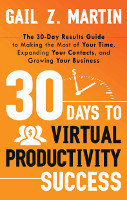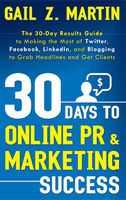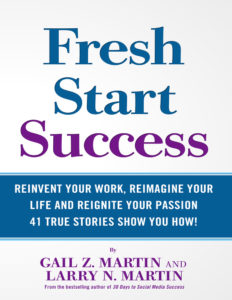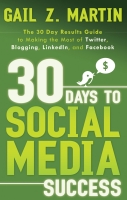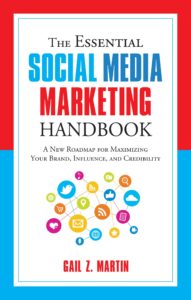By Karel Murray, CSP, DREI
If you want to make more money in today’s competitive environment, then you need to master your business niche. Let me show you a perfect, prime example of niche marketing at its best:
The AARP card appeared in the mail again. This time I actually opened the envelope and reviewed the material included with the invitation to join. Offers of insurance, magazines, on-line registrations and general information related to aging spilled out across the table. Everything in the packet maintained the specific intent of enticing a middle age person to join the group dedicated to senior citizens.
A scant five years ago, I wouldn’t have acknowledged the promotional material. It would have been swept into the nearest garbage can as I briefly wondered why this organization wasted its marketing dollars on me. Now, as I scan the introductory letter, the supporting messages delivered in the envelope are beginning to make sense. I’ve discovered that the magazine is dedicated to providing me with information on medical advancements for cholesterol control, suggestions to slim the middle age bulge and tips to improve my memory. That last one caught my attention.
Startled, I realized that I aged into the targeted demographic of The American Association of Retired Persons (AARP) and didn’t feel it coming on. When, for god’s sake, did I stop being 35? AARP knew it would happen and patiently primed the pump for several years as it waited for me to emotionally recognize that my body and brain would change. My perspective would alter and this organization graciously waited until it was needed.
Now, that’s niche marketing!
When is Niche Marketing Most Effective?
Niche marketing is most effective when you immerse yourself in a specific topic area and then start building your reputation for being a thought leader on that specific topic. It may sound intimidating, but in reality, all it demands is focus.
Nido Qubein, a recognized business strategist and forward thinker coined the term “Intentional Congruence”. He stresses that everything you do in your business must tie into everything else you do. It’s about having intent and purpose to intimately understand what you are doing and why… Without understanding who you help and why you are doing what you do, how can you expect anyone else to know?
5 Elements to Identifying and Building Your Business Niche:
- Create an inventory of your strengths. Identify how you relate to people and get specific in your values. List what you already know and what you need to learn to position yourself as an expert in your field. Describe the specific abilities you possess that are unique to you. Determine where you stand in terms of current finances, and read about the real check stub maker for the payments of a business. And, estimate what financial requirements will be necessary to build your niche with your target market.
- Select the top two areas you have a passion for pursuing. Without passion or emotional engagement for the subject area, long-term success is unlikely. The ultimate goal is to do what you love, love what you do and make an acceptable living as you do it!
- Research the two niche areas you’ve identified. Determine: who are the top three businesses or individuals already doing what you want to do? Review their websites and gain a sense of how connected and informed your future competition is. Research the internet fully to gain a sense of topic areas, product offerings and customer/client “reach out” efforts. Identify what is already in place and focus on those areas you feel are underserved.
- Build a resource inventory. Contact business professionals as needed to build alliances. Create opportunities to interview people or hire whoever might be necessary to fine tune your business plan or fill in the gaps of knowledge on areas that are critical in establishing you as an expert. Offer your services to other business professionals as well. Just because you are new to a niche, doesn’t mean you are lacking expertise. They simply don’t know about you yet! Building relational capital with others who thrive in the market you wish to enter is always beneficial to everyone who participates.
- Put your stake in the ground and claim your position within your targeted niche. Here’s how…
- Start offering your knowledge to the masses by using social media liberally.
- Become a fan of expert pages and register to participate in other List Serves that focus on your area of expertise.
- Read and post to other expert blogs on your topic.
- Write articles focusing on your area of expertise and submit them for online publication. You can go to www.TryMyFreeArticleTemplates.com/karel for 3 free article templates.
- Make every opportunity to interview other industry experts by teleseminar and provide those to your clients as additional resource material.
- Build an accessible on-line library that is exploding with information for your customers and clients.
- Create surveys for completion by your target market to gain knowledge through research and insight that is unique to you. Publish a white paper or report annually that includes this research.
Now, you have the keys to dominating your business niche. Nothing is holding you back from being the expert, knowing your target market and maintaining a gentle helping hand. You are in charge of designing and maintaining a world of comfort for your customers and customers. You can make their lives easy because they now have you – the expert to rely on.
About the Author:
Karel Murray is a Certified Speaking Professional, author of “Hitting Our Stride: Women, Work and What Matters” and business trainer who helps women entrepreneurs and executives improve their overall business effectiveness and productivity. Now, you can listen to her exciting, free interviews at https://www.JustiForaMoment.com. Each podcast interview gives you 3 takeaway ideas or concepts that you’ll be able to implement right away


